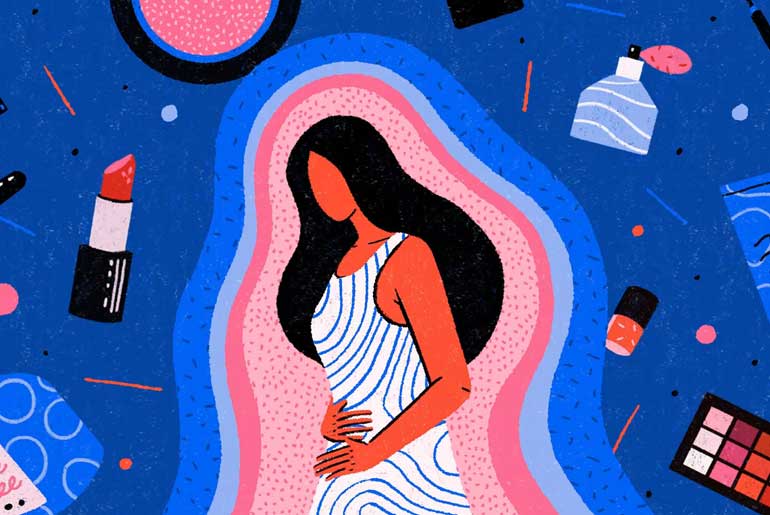A recent study conducted by a University of Massachusetts Amherst environmental and reproductive epidemiologist revealed a concerning association between exposure to phthalates, a group of plasticizing and solvent chemicals commonly found in household chemical items, and a reduced likelihood of getting pregnant. The research, published in the journal Environmental Health Perspectives, indicated that while exposure to phthalates did not correlate with pregnancy loss, it did show a link to changes in women’s reproductive hormones, heightened inflammation, and increased oxidative stress.
Phthalates are prevalent in everyday products such as shampoo, makeup, vinyl flooring, toys, and medical devices. The primary route of exposure for individuals is through ingesting food and liquids that have come into contact with items containing these household chemicals, as outlined by a Centers for Disease Control and Prevention fact sheet.
“Phthalates are ubiquitous endocrine disruptors and we’re exposed to them every day,” states lead author Carrie Nobles, assistant professor of environmental health sciences in the School of Public Health and Health Sciences.
The study analyzed data from the EAGeR (Effects of Aspirin in Gestation and Reproduction) study, focusing on a cohort of women during the preconception period. The researchers, led by environmental epidemiologist Lidia Mínguez-Alarcón, examined 1,228 participants over six menstrual cycles as they attempted to conceive, monitoring those who became pregnant throughout their pregnancies.
“We were able to look at some environmental exposures like phthalates and how that relates to how long it takes to get pregnant. There was detailed data for each menstrual cycle, so we had a good handle on the date of ovulation and the timing of pregnancy when that happened,” Nobles states.
The analysis of urine samples revealed the presence of 20 phthalate metabolites, which are breakdown products of phthalates. Higher levels of phthalate exposure were linked to increased inflammation and oxidative stress, factors that can contribute to organ and tissue damage and lead to various diseases.
“We found there were three parent compounds that seem to be most strongly associated with taking longer to get pregnant, although we saw a general trend toward it taking longer to get pregnant across the phthalates we looked at,” Nobles states. “As exposure got higher, we saw more and more of an effect.”
Furthermore, women with elevated phthalate levels exhibited lower estradiol and higher follicle-stimulating hormone levels throughout the menstrual cycle. These hormones are crucial for ovulation and the early stages of pregnancy.
Despite individuals being able to check product labels for phthalate-free options, the widespread use of these household chemicals makes it challenging for individuals to control their exposure. While certain phthalates are banned or severely restricted in Europe, the United States lacks formal prohibitions.
“This profile — estradiol staying low and follicle-stimulating hormone staying high — is actually something that we see in women who have ovarian insufficiency, which can happen with age as well as due to some other factors,” Nobles states. “Ovulation just isn’t happening as well as it used to.”
The study’s lead researcher, Kelly K. Ferguson Nobles, emphasized that these findings contribute to the growing body of evidence indicating the adverse impact of phthalate exposure on women’s reproductive health. This information can be crucial in informing policymaking and advocating for measures to address the potential risks associated with these ubiquitous household chemicals.
“Maybe we want to think differently about our regulatory system and how we identify important exposures that are having adverse effects on whether people can get pregnant and have a healthy pregnancy,” Nobles states.
Disclaimer:
The information contained in this article is for educational and informational purposes only and is not intended as a health advice. We would ask you to consult a qualified professional or medical expert to gain additional knowledge before you choose to consume any product or perform any exercise.








